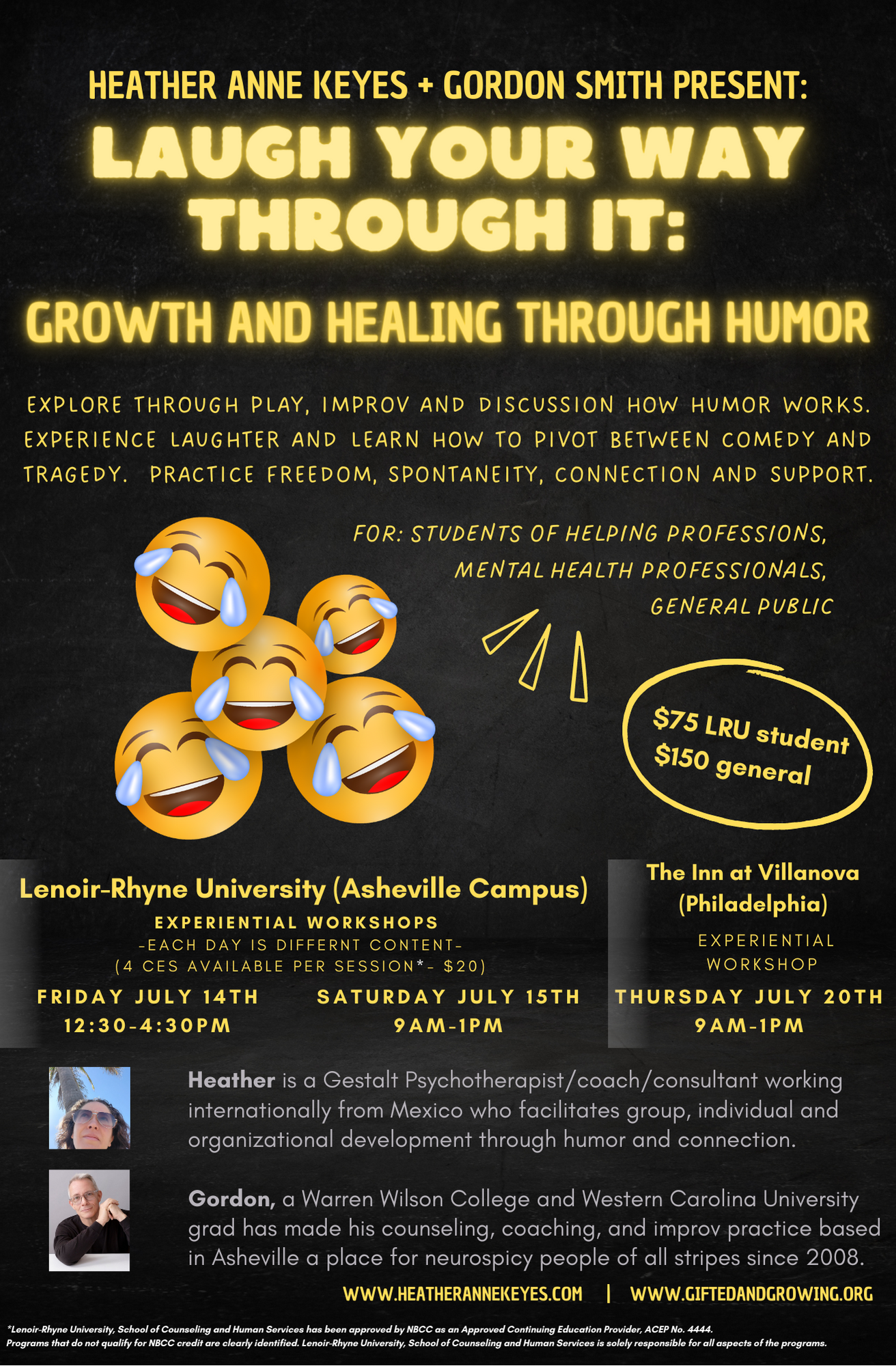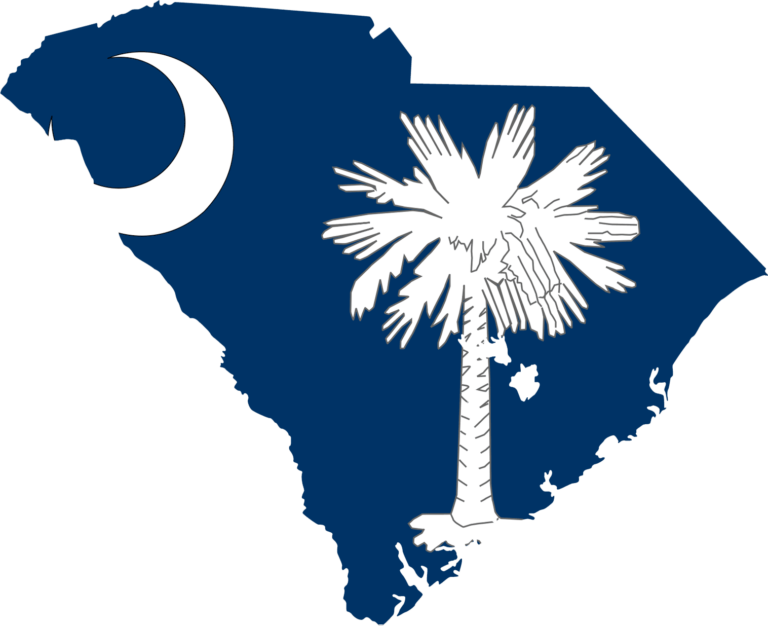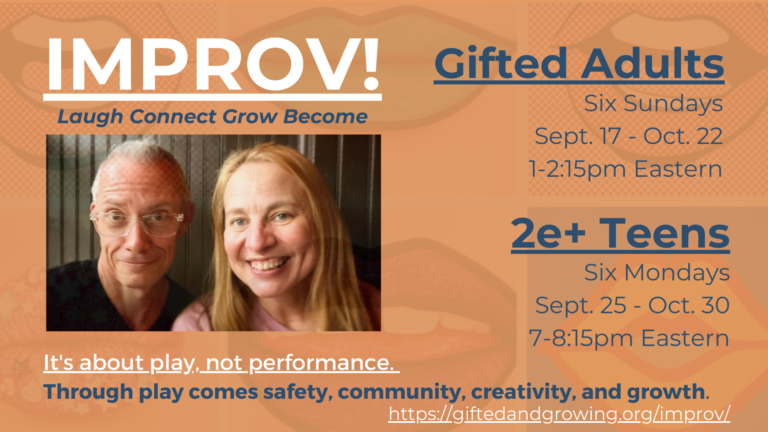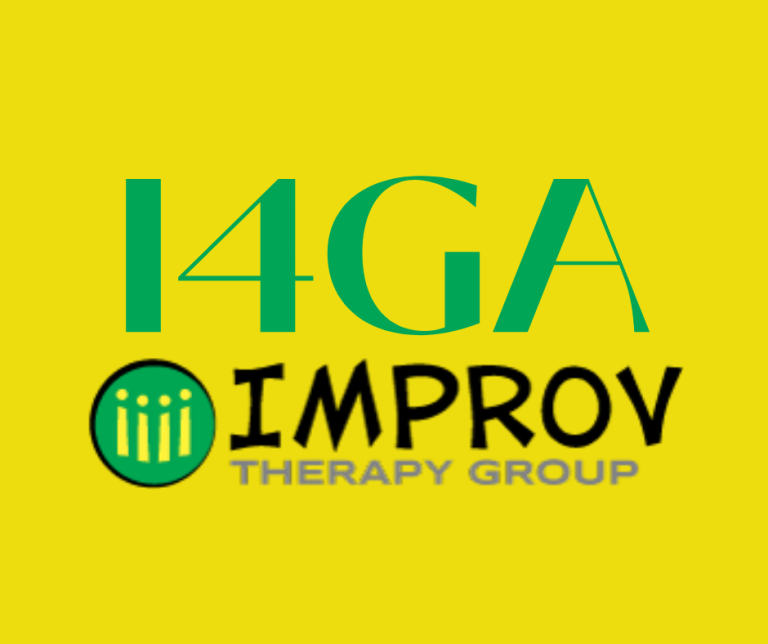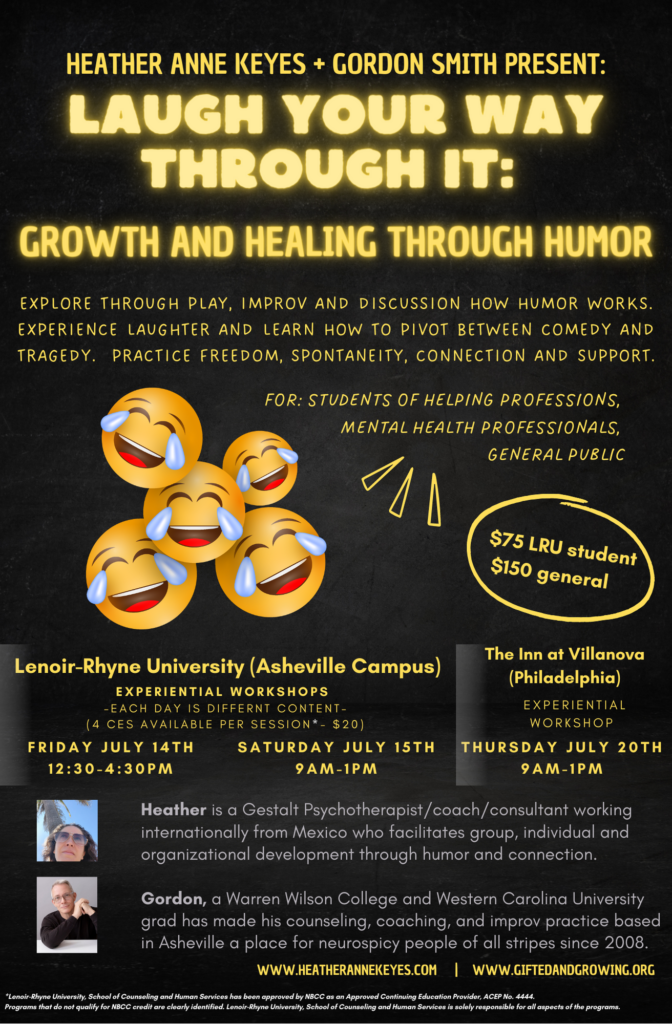
When was the last time you actually had fun at a workshop? Not that “organized fun” kind of fun, but the kind that really resonated with YOU and your own unique sense of humor?
We use lots of tools to help us grow and heal throughout our lives, and one too rarely taken seriously is: humor. Finding what’s funny can shift our perspectives on ourselves, our relationships, our challenges, and our world.
Well, you’re invited to be a part of these personal development, growth, and healing spaces this summer! We all have a sense of humor, even if we are not usually “the funny person” in a room, and together, we´ll learn how to build connection and support through shared laughter and spontaneous play. We´ll also delve into the “why” and the “how” and the “what-does-it-all-mean?” So, come and explore how powerful and liberating laughter can be, even in weird times.
Who said mental health stuff was supposed to be “serious” all the time? In these workshops, we’re going to play – shamelessly – and learn how to intentionally toggle our perspectives of comedy/tragedy throughout our daily experiences of living. They’re going to be a hilarious half-days of learning through listening, discussion, and experimentation designed to help you bring your fullest, most authentic self into your life and your work.
There are three in-person opportunities this summer, and you’re invited to attend one or more of them. Also, please let us know if you’re interested hosting Laugh Your Way Through It virtually or wherever you live.
What it is, and what it isn’t
It’s about seeing the world through different lenses and choosing different perspectives. It’s about having an experience of joy, laughter, safety, and community – and learning how it feels to be in a room full of people who are going to respect and accept you for who you are. These workshops are equity centered, shame sensitive and trauma informed.
You can expect to learn about Humor Theory and, through experiential exercises, how to become more conscious of humor’s power in shifting the way we move through the world. For comedians, improvisers, dramatists, jokesters, mischief makers, and the people who love them, you’ll be able to move outside of traditional “self-help” methods and into using humor to improve your experience of living, especially when life is at its hardest. For mental health clinicians of all stripes – we’re willing to bet that your training almost never touched on the role of humor in therapy – you’ll learn how humor shapes consciousness and how to use it with your clients and in your life to create conditions for growth and healing. Continuing Education credits are available at the Asheville workshops, and Lenoir-Rhyne students are invited at a half-price rate.
In this workshop, we’ll explore through play, improv, and discussion how humor works and why we need it in our lives.

- We will examine the social, cultural, and interpersonal functions of jokes, play, and laughter.
- We will explore the comedy-tragedy bond in our personal narratives and characters, and appreciate the resilience and resistance that humor offers us in our human struggles.
- We will practice play, spontaneity, and surprise.
- You will increase your trust in your own spontaneous expression.
- You will begin to heal the shame that’s kept you bound too tightly.
- You will feel what it’s like to be in a room full of people who are committed to supporting each other through play.
- The facilitators will model their different approaches to co-creating supportive experiences to enable participants to take risks, overcome shame, and show up as their fullest, most authentic selves.
- For mental health clinicians – you will take away new ways of being in your role and new ways to help your clients find perspective on the things that trouble them most.
- Utilize humor to experience and help others experience validation, support, and ease.
- Utilize humor theory principles to your counseling work with clients.
- Use humor principles and exercises to form stronger relationships with clients.
- Use humor principles and exercises to become more present with clients.
- Distinguish play from performance in order to embody and support authenticity.
- Develop greater trust and confidence in yourself.
- Apply humor principles and exercises to help others develop greater trust and confidence.
- Demonstrate applied curiosity and acceptance through humor principles and exercises.
- Each day will contain different content, and the group experiences will be unique.
It’s not about “being funny”. It’s not about performing. It’s not about sitting through a four-hour lecture while someone reads you a powerpoint. It’s not about forcing anything. It’s not about insect larvae. It’s not about anything unfun.
When and Where and How Much
Asheville, NC
Friday, July 14
12:30pm – 4:30pm
Lenoir-Rhyne University, 36 Montford Ave, Asheville, NC 28801
LRU Students – $75; Everyone else – $150
CEs available for an additional $20
Asheville, NC
Saturday, July 15
9am – 1pm
Lenoir-Rhyne University, 36 Montford Ave, Asheville, NC 28801
LRU Students – $75; Everyone else – $150
CEs available for an additional $20
Radnor, PA – The Inn At Villanova
Thursday, July 20
9am – 1pm
$150
601 County Line Rd, Radnor, PA 19087-4523
Who Are The Facilitators?
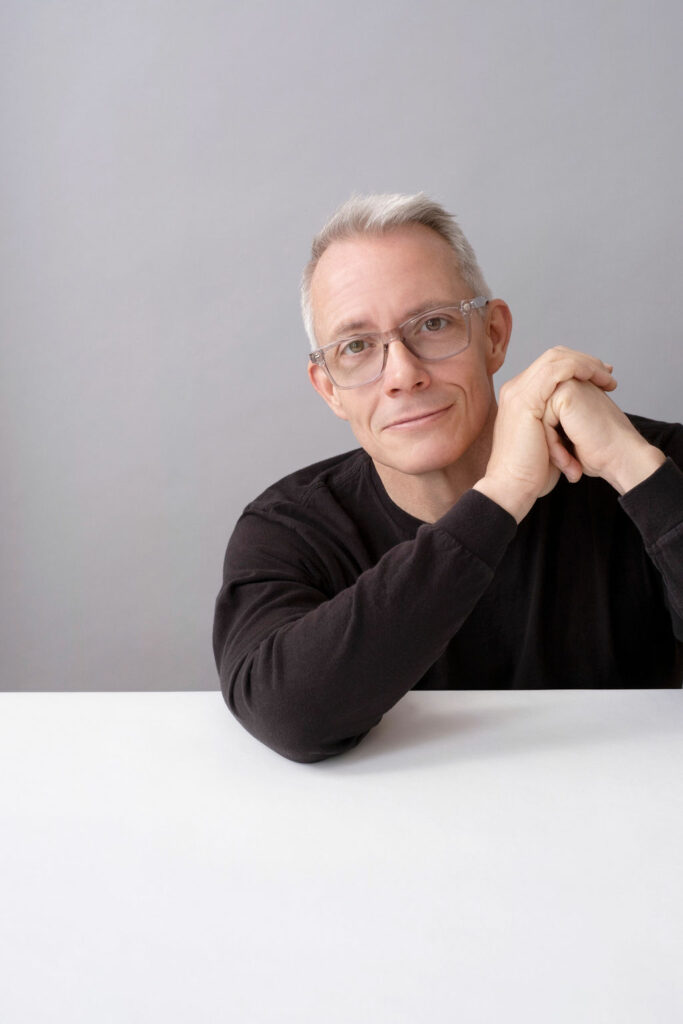
Gordon Smith is a Licensed Clinical Mental Health Counselor, Coach, and Improv Instructor living in Asheville, North Carolina. He’s been a counselor for 23 years, a coach for 7, and an improviser for 3. His practice focuses on neurodivergent adolescents, adults, and families (gifted, ADHD, ASD, learning differences, etc). Gordon became an improviser through his work with Lisa Bany of Second City, Chicago and with Angela Nino of Improv Therapy Group. He took scads of classes, became an Improv Therapy Group Advisory Board Member, became an instructor with the group. He’s run Improv groups for gifted adults, twice-exceptional adolescents, and practicing therapists.
Gordon is passionate about the transformative power of play and humor. He complements his clinical work with improv groups because he’s found they are a different route to get to the places most of his clients want to go: greater self-trust, greater acceptance of self and others, transcending perfectionism, shifting perspectives, integrating disparate parts of ourselves, helping people come into their fullest expression.
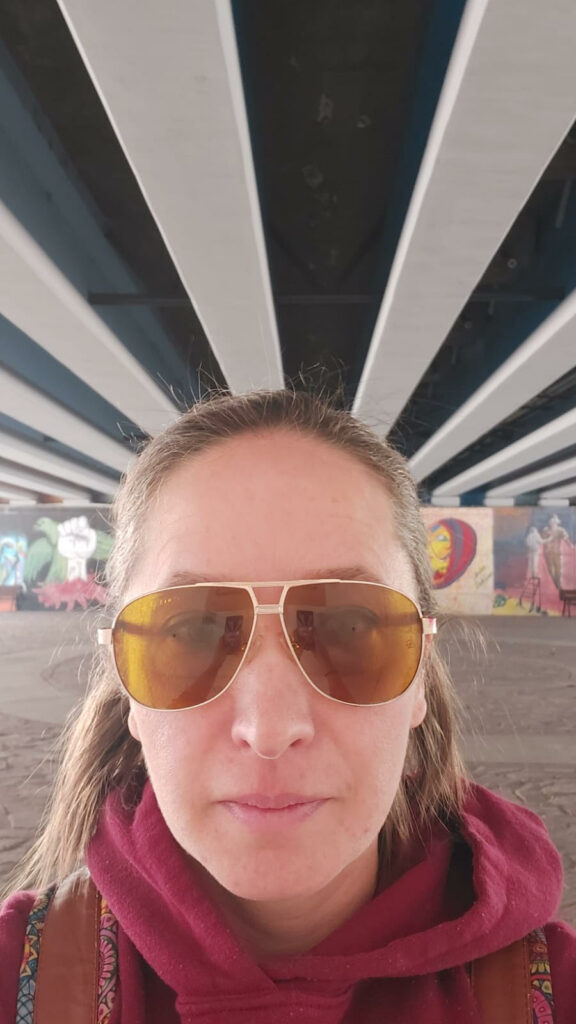
Heather Anne Keyes is the Founder and Director of the Mexican Gestalt Psychotherapy Association. She is a Gestalt psychotherapist, international conference organizer, consultant who lives with her two children in Durango, Mexico. Heather is a social anthropologist and expert in Latin American Cultural Studies. She’s worked with comedians, clowns, and clinicians all over the world. She’s a Mexican Federally Licensed Psychotherapist with 10+ years clinical and international academic experience with mindfulness towards equity, sustainability and ecology at all times. She marshals ongoing and time-limited supervision, intervision, and professional development courses for psychotherapists and time-limited process groups for the general public.
Heather’s predisposition to organizing people for unique experiences has led to extraordinary events. Drawn to play, connection, clowning, stand-up, and the absurd, Heather creates conditions for self-discovery that transform and expand traditional boundaries and conventional wisdom about what it means to be a therapist, a client, and a human with an identity.
Frequently Asked Questions (and those we anticipate may be…)

Who can take these workshops?
Anyone can participate on a self-discovery level. If you are a therapist, you will probably be able to relate to some of the situations we found ourselves needing to learn about this stuff in. Humor, laughter and relational connection are universal human experiences though, and are transferable skills that you can take away from this workshop even if you are not taking them directly into a consulting room. You can use them in classrooms, kitchens, board meetings, hostage negotiations and other “real life” scenarios.
How many sessions should I take?
You can take as many as you´d like. We´d be honored if you drove all the way to a different state to participate in all three, but we certainly don´t require or expect it.
Are the sessions all different?
Expect the unexpected. Yes. Improv, laughter and humor all happen in relationship.
I´m shy, is this going to be like that time the clown picked on me at my birthday party?
We know humor can be weaponized. Comedy has a tragic shadow side- it can cause shame and do harm. We will go to great lengths to prevent that from happening. We will practice the improv principle of “having each other´s back” and calibrate to the unique configuration of individuals in the room in a given session. You don´t have to do anything you don´t want to do. You can even sit back and watch if that´s what feels best for you.
Is the PA workshop about giftedness?
Both of us have extensive relationship to giftedness, neurodivergence, neurodiversity, and neurospicy brains and people. “The sky´s the limit” – both the theory content and experiential work as we are borrowing the “yes, and….” spirit of clown and improv to geek as far out or to dive as far in as you are willing and able to in 4 hours. We will explore all of the diverse muchness-es, intensities and eccentricities of the group.
Are these Gestalt-therapy related?
Heather really can´t hide that the creative, relational and experimental spirit of Gestalt and it´s “NOW what?” essence are always going to be just under the surface of her work. Gordon thinks he does other stuff but may have some Gestalt ancestry in his genes.
This is the number one FAQ in Mexico:
Can I get a discount?
We’re open to it! You can also leave a generous tip if you love what we do. Heather flew all the way from Mexico just to do this because it seemed like fun! Gordon now has to feed a Mexican family of 3 living in his guest room for a week…
For Asheville based workshops: Lenoir-Rhyne University, School of Counseling and Human Services has been approved by NBCC as an Approved Continuing Education Provider, ACEP No. 4444. Programs that do not qualify for NBCC credit are clearly identified. Lenoir-Rhyne University, School of Counseling and Human Services is solely responsible for all aspects of the programs.

